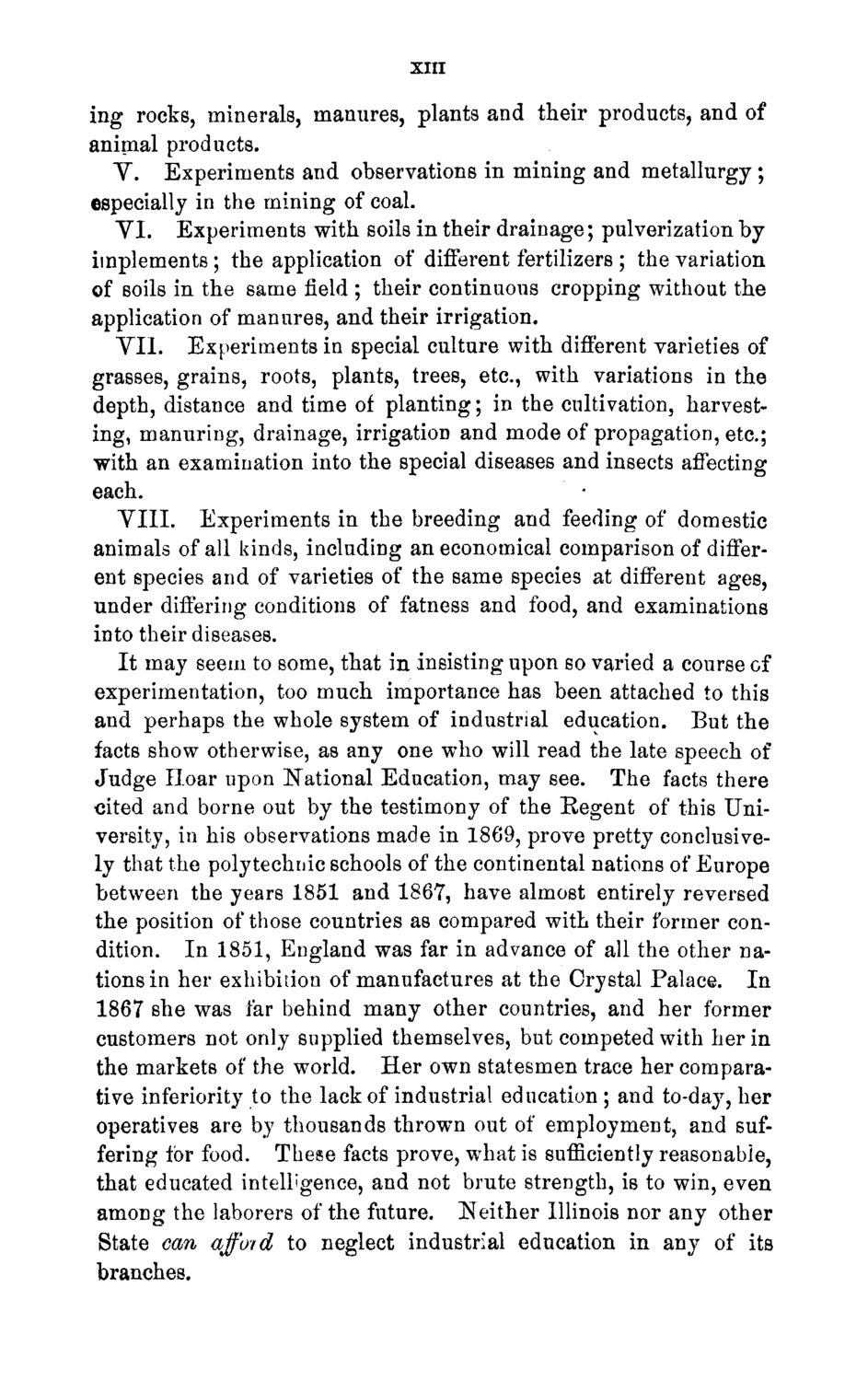| |
| |
Caption: Board of Trustees Minutes - 1870
This is a reduced-resolution page image for fast online browsing.

EXTRACTED TEXT FROM PAGE:
XIII ing rocks, minerals, manures, plants and their products, and of animal products. V. Experiments and observations in mining and metallurgy ; especially in the mining of coal. V I . Experiments with soils in their drainage; pulverization by implements; the application of different fertilizers ; the variation of soils in the same field ; their continuous cropping without the application of manures, and their irrigation. V I I . Experiments in special culture with different varieties of grasses, grains, roots, plants, trees, etc., with variations in the depth, distance and time of planting; in the cultivation, harvesting, manuring, drainage, irrigation and mode of propagation, etc.; with an examination into the special diseases and insects affecting each. V I I I . Experiments in the breeding and feeding of domestic animals of all kinds, including an economical comparison of different species and of varieties of the same species at different ages, under differing conditions of fatness and food, and examinations into their diseases. It may seem to some, that in insisting upon so varied a course of experimentation, too much importance has been attached to this and perhaps the whole system of industrial education. But the facts show otherwise, as any one who will read the late speech of Judge Hoar upon National Education, may see. The facts there cited and borne out by the testimony of the Regent of this University, in his observations made in 1869, prove pretty conclusively that the polytechnic schools of the continental nations of Europe between the years 1851 and 1867, have almost entirely reversed the position of those countries as compared with their former condition. In 1851, England was far in advance of all the other nations in her exhibition of manufactures at the Crystal Palace. In 1867 she was far behind many other countries, and her former customers not only supplied themselves, but competed with her in the markets of the world. Her own statesmen trace her comparative inferiority to the lack of industrial education ; and to-day, her operatives are by thousands thrown out of employment, and suffering for food. These facts prove, what is sufficiently reasonable, that educated intelligence, and not brute strength, is to win, even among the laborers of the future. Neither Illinois nor any other State can afford to neglect industrial education in any of its branches.
| |